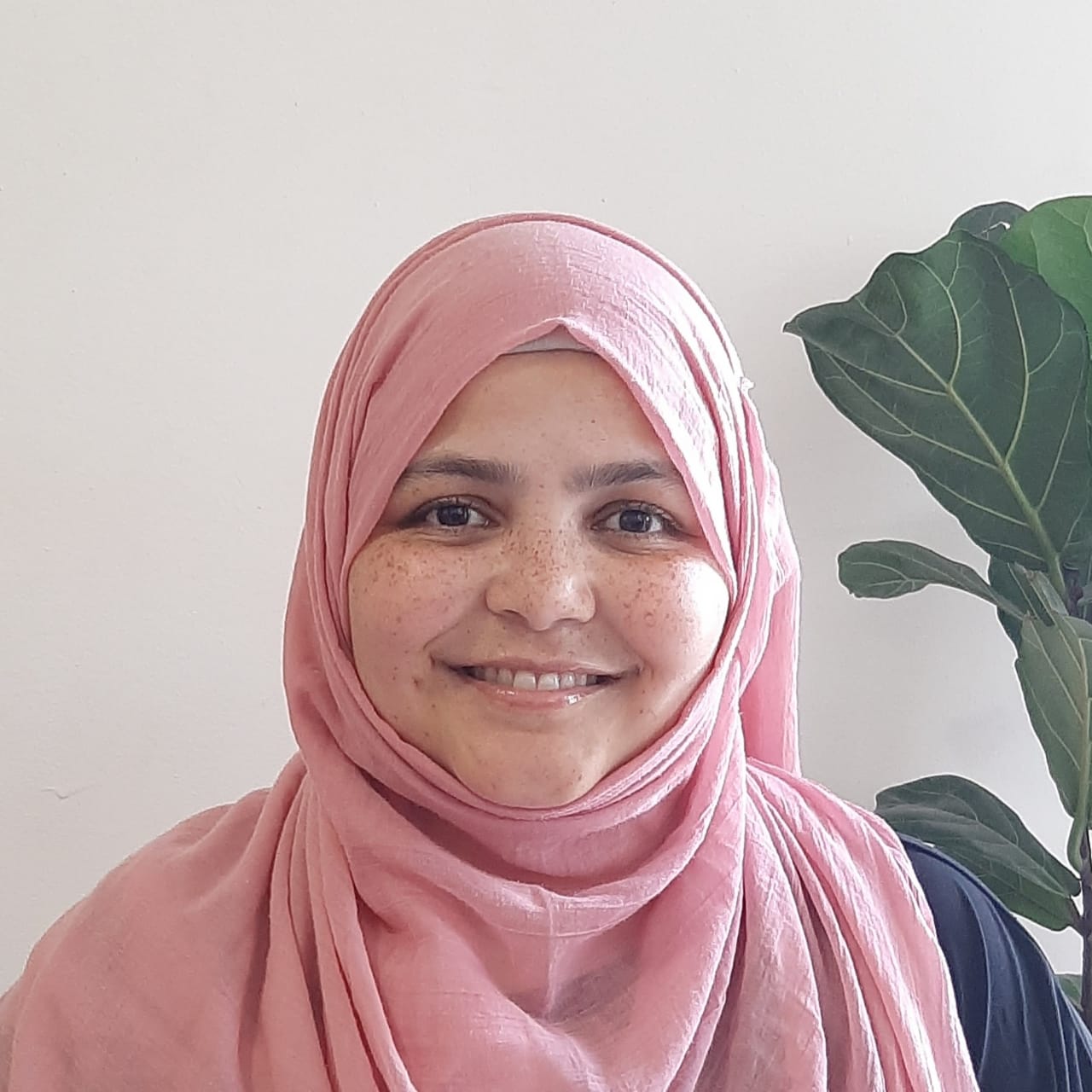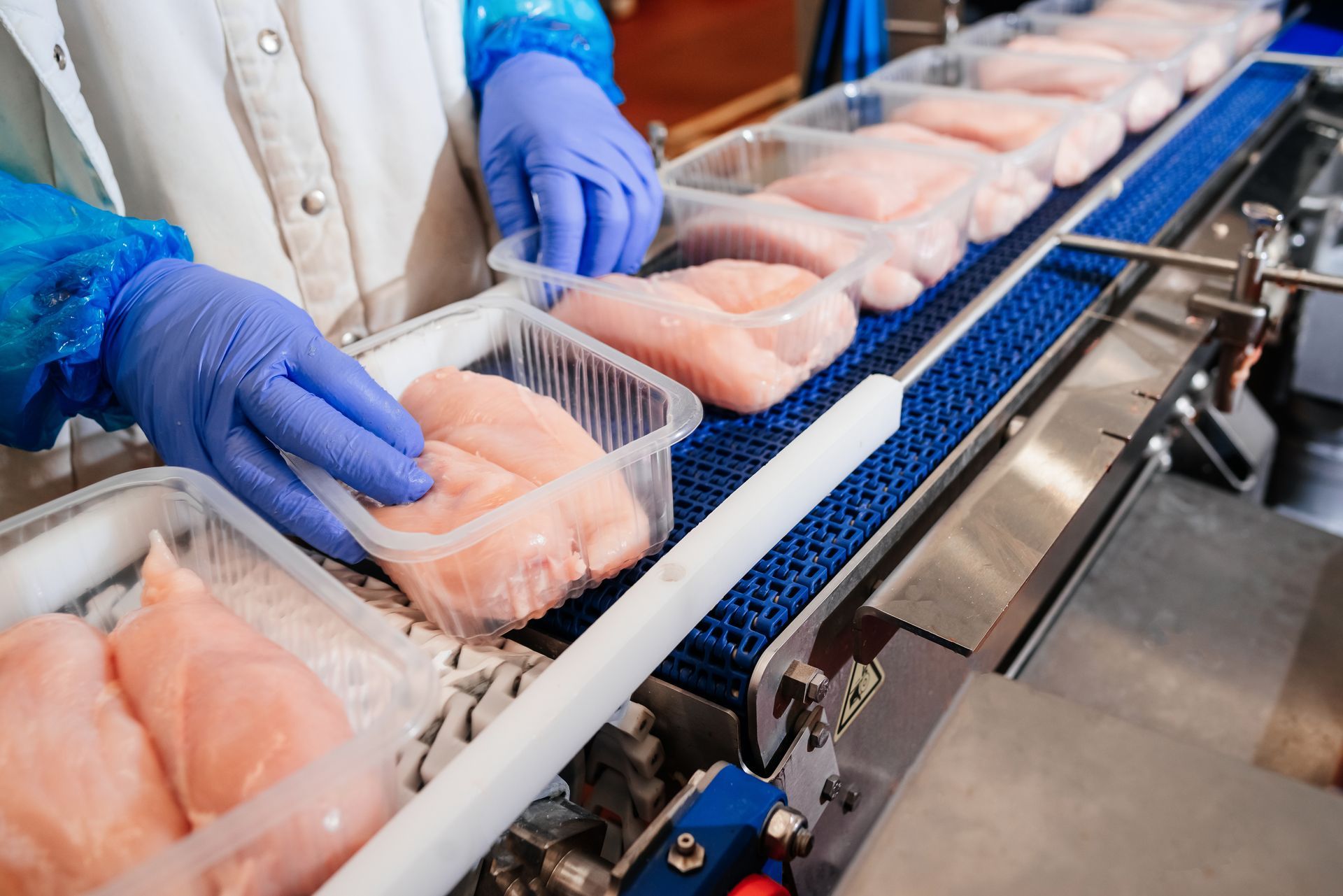Ruqaiyah Davids is a teacher, freelance writer, and poet living in Cape Town, South Africa. She holds a Bachelor of Arts (Honours) degree in Languages and Communication and, after finding her passion for teaching, went on to complete a postgraduate qualification in Education. She feels strongly about topics of emotional intelligence and self-development, and sometimes gets carried away with preaching too much about it to anyone who will listen. She is currently in the process of having her first book of poetry published.
1-877-HALAL-WW (+1-877-425-2599)
Nine Ways to Eat Like Him ﷺ
How do we determine the 'right' way to eat in a time of fad diets?

One might be tempted to go into this new year with the idea of 'New Year, New Me.' Sadly, due to diet culture, for many that translates into 'New Year, New Body.' We make intentions to eat better, work out, and lose weight - to change our bodies.
Unsurprisingly, these goals burn bright at the start of the year and then eventually fizzle out and die.
What went wrong? Perhaps it was a flawed beginning all along -- the stimulus to change being external rather than internal or maybe we lacked direction as to what constitutes good eating habits and a good diet.
For a Muslim, our solution to the latter problem is best solved by looking at the Prophetic model: how did he ﷺ eat? Our minds might be blown to learn the beautiful simplicity of this most basic, mundane of daily activities that have been documented from the life of our Prophet ﷺ.
Regardless of whether we wish to lose weight, improve our health, or change our body in any way -- these habits will undoubtedly be beneficial to include in our daily eating routines. Here are nine ways in which the Prophet ﷺ approached food and eating.
Before eating
When it's time to sit down for a meal, the process should begin before we take our first bite. Rather than eating without attention to what or how much we dish onto our plates or snacking while socializing with friends or watching TV, we should be mindful of what we choose to eat.
1. Mentally, we should intend to eat only enough to sustain our bodies.
The Messenger of Allah ﷺ said:
"The human does not fill any container that is worse than his stomach. It is sufficient for the son of Adam to eat what will support his back. If this is not possible, then a third for food, a third for drink, and third for his breath." [1]
Now, this does not mean that you cannot enjoy your favorite foods. By all means, have your caramel baked cheesecake and eat it too. But let's be mindful to eat only so much to satisfy us and not fill our stomachs beyond what is advisable.
2. Spiritually, we are advised to begin with remembering Allah and the food He has provided us.
'Aisha (رضي الله عنها) relates that while the Messenger of Allah ﷺ and six companions were having meals, a Bedouin came. He ate all the food up in two bites.
The Messenger of Allah ﷺ said:
"If he had read 'Bismillah' [to say: 'With the Name of Allah' before beginning], it should have been sufficient for all." [2]
We are taught by the Messenger ﷺ that to begin any deed with remembering Allah first adds untold blessings to the action. So not only does it make a little food stretch further, as indicated in the above hadith, but it also adds goodness to each bite, thus adding more nourishment to what we eat.
3. Additionally, the Prophet Muhammad ﷺ also encouraged us to share our food with others and to eat together rather than alone.
Allah's Messenger ﷺ said:
"The food for two persons is sufficient for three, and the food of three persons is sufficient for four persons." [3]
We should approach our food with an abundance mindset rather than one of scarcity. This, too, references the previous hadith cited, about saying 'Bismillah' before eating adds blessings and abundance to our meals.
Who can deny the joy that comes from sharing our food with others? Even if you only have a few crisps left when your friend walks into the room - share it. It will make those few crisps go down so much better!
(Disclaimer: Not advised during 'Corona Times'.)
The Messenger of Allah ﷺ said:
"Eat together and do not eat separately, for the blessing is in being together." [4]
A popular saying that I grew up hearing my mom say around dinner time is: "A family who eats together stays together." She did this as a way of explaining to us teenage children why we couldn't have our meal in our bedrooms rather than at the dinner table with her and my dad.
While the benefits of eating together as a family might not be scientifically proven, one cannot deny that it cultivates strong family ties through better communication and understanding within the family.
Beyond the family, though, even sharing a meal with friends or the greater community fosters a sense of harmony and unity.
4. We should also be conscious of our physical position while eating. So, when getting ready to eat, we should sit upright and not be lying down, leaning, or reclining.
The Messenger of Allah ﷺ said:
"I do not lean and eat." [5]
As followers of the Messenger of Allah ﷺ, we do not require scientific evidence to justify his ﷺ advice before we follow them. But it is worth noting that sitting upright while eating aids digestion, while leaning may lead to complications and discomfort after the meal.[6]
While eating
Now that we've got the basics right, we're finally ready to dig into our meal! Bismillah!
Let's review the etiquette of the Final Prophet ﷺ while eating.
5. It was the habit of the Messenger of Allah ﷺ to begin any deed with his right hand or to start something on the right side. Thus, he advised us to eat with our right hands.
Umar Ibn Abi Salamah (رضي الله عنه) says:
"I was a boy under the care of Allah's Messenger ﷺ, and my hand used to go around the dish while I was eating.
So, Allah's Messenger ﷺ said to me:
'Oh boy! Mention the Name of Allah and eat with your right hand and eat of the dish what is nearer to you.'
Since then, I have applied those instructions when eating." [7]
6. From the previous hadith, we also learn that we should not eat from all around our plate. Rather, we should start at one point, the point right in front of us, and work our way through the dish from there.
7. In modern times, it is considered 'civilized' to eat with cutlery: a knife and fork. But the Prophet Muhammad ﷺ has advised us to eat with our hands -- and his advice is timeless.
Ka'b bin Malik ( رضي الله عنه) says:
"It was the noble habit of Rasulullah ﷺ to use three fingers whilst eating…" [8]
The Prophet ﷺ would eat his food with the first three fingers (starting from the thumb) on his right hand. So, at our next meal, let's forget about the knife and fork and give our good ol' fingers a try. We might even find the food tastier this way than with metal cutlery!
After eating
The Prophet Muhammad's ﷺ lifestyle was so all-encompassing that it extended to every facet of mealtime, even to the completion of the meal.
8. Once he ﷺ was done eating, the Prophet Muhammad ﷺ would lick his fingers.
This again takes us back to the concept of 'blessings' that we touched on earlier. The Prophet Muhammad ﷺ tells us that there are blessings from Allah in our food, and because we do not know which morsel of the food it is in, we should therefore not waste any part of the meal, not even the remnants on our fingers -- or any bits that might fall on the floor.
Because who would want to miss the blessings of the Lord of the Worlds, right?
Continuing from the previous hadith cited from Ka'b bin Malik (رضي الله عنه) , in addition to the Messenger ﷺ eating with his three fingers, Ka'b bin Malik said:
"...and he also licked them."
Additionally, the Prophet ﷺ explained:
"When any one of you drops a mouthful, he should
pick it up and remove any of the filth on it, and then eat it, and should not leave it for the Satan, and should not wipe his hand with a towel until he has licked his fingers, for he does not know in what portion of the food the blessing lies." [9]
9. Finally, we end our meal by praising and thanking Allah for the food He has given us. With all those blessings in our food, it's the most natural thing to do.
Abu Umamah (رضي الله عنه) says:
"When the dastarkhan (tablecloth) was being removed in the presence of Rasulullah ﷺ, Rasulullah ﷺ recited this du'a (supplication):
'Alhamdulillahi hamdan kathiran tayyiban mubarakan fihi ghayra mu-wadda-in wa-la mus-taghnan 'anhu rabbuna.'"[10]
Allah's Kindness is so vast that, after providing sustenance for us, if we give thanks to Him, He is pleased with us. And we know that Allah's Pleasure is no small thing.
Anas (رضي الله عنه) relates from Rasulullah ﷺ that, Allah is pleased with that servant who eats one morsel (bite) or drinks one sip and gives thanks to Him.[11]
I am astounded by the beauty in his ﷺ modest daily life and the goodness that comes from it. This article only touches on a few of his mealtime habits; there is still more to learn about what he ate, how frequently, and other lessons in etiquette. But perhaps these few steps, to start with, will set us on the right track towards developing good eating habits and a more beneficial relationship with our food and our bodies.
Works cited:
[1] Sahih, Sunan Ibn Majah 3349, Book 29, Hadith 99
[2] Sahih, Ash-Shama'il Al-Muhammadiyah 192, Book 27, Hadith 6
[3] Sahih al-Bukhari 5392, Book 70, Hadith 20
[4] Hassan, Sunan Ibn Majah 3287, Book 29, Hadith 37
[5] Sahih, Ash-Shama'il Al-Muhammadiyah 138, 139, Book 23, Hadith 3
[6] https://grovesoftustin.com/wp-content/uploads/2017/07/Joy-of-Eating-June-2017.pdf
[7] Sahih al-Bukhari 5376, Book 70, Hadith 4
[8] Sahih, Ash-Shama'il Al-Muhammadiyah 140, Book 23, Hadith 4
[9] Sahih Muslim 2033, Book 36, Hadith 175
[10] Sahih, Ash-Shama'il Al-Muhammadiyah 191, Book 27, Hadith 5
[11] Sahih, Ash-Shama'il Al-Muhammadiyah 193, Book 27, Hadith 7













